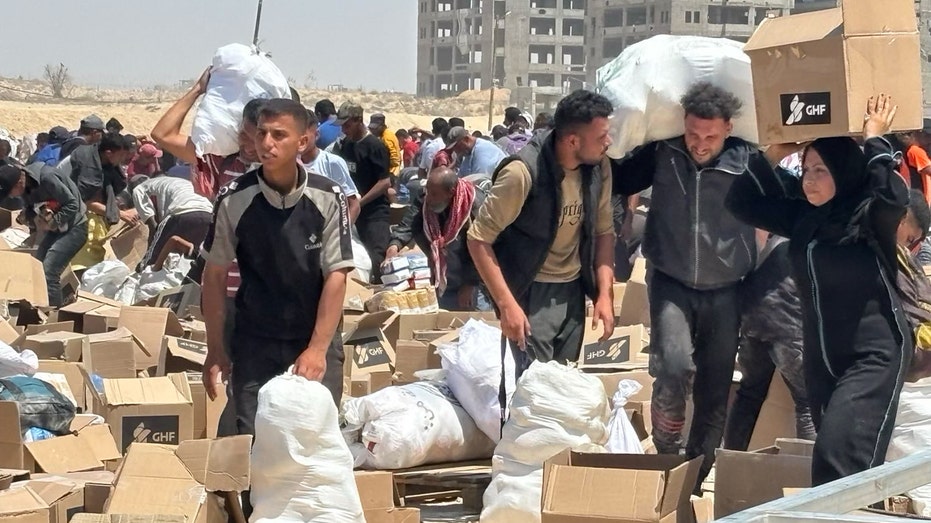Israeli Official Accuses Hamas of Attempting to Sabotage Trump-Backed Aid Group with False News
Israeli official accuses Hamas of sabotaging humanitarian aid efforts to maintain control in Gaza.

The Gaza Humanitarian Foundation (GHF), a U.S. and Israeli-backed humanitarian organization, has faced intense scrutiny and backlash following the recent launch of its food distribution program in Gaza. The group’s efforts to provide direct aid have been marred by reports of violent confrontations near distribution sites, raising serious concerns about the safety of both recipients and workers. In a recent development, the Israeli Defense Forces (IDF) acknowledged that troops opened fire on individuals they described as “suspects” who did not comply with orders to move away from military personnel stationed near the aid locations.
This volatile situation has further fueled a heated debate between international agencies regarding the best approach to delivering critical assistance in Gaza. The United Nations, through Under-Secretary-General for Humanitarian Affairs and Emergency Relief Coordinator Tom Fletcher, has strongly advocated for allowing U.N.-run agencies to coordinate and oversee aid delivery. Fletcher has argued that his agency possesses the expertise and neutrality needed to ensure fair distribution. On the other hand, Israeli officials remain adamant that the GHF provides a vital alternative by ensuring that aid reaches civilians directly—without interference or benefits funneling to Hamas.
Israeli Ministry of Foreign Affairs Spokesperson Oren Marmorstein has accused Hamas of actively sabotaging the GHF’s mission. He asserted that the militant group is “doing everything that it can” to disrupt efforts to provide relief, motivated by fears that successful independent aid operations could diminish Hamas’s control over the enclave. Marmorstein went further to blame Hamas for circulating misinformation aimed at discrediting the foundation’s work and undermining its legitimacy within Gaza.
Tensions were further inflamed this week when the United States vetoed a U.N. Security Council resolution calling for an immediate ceasefire and unrestricted humanitarian access to Gaza. The proposal was criticized by U.S. representatives, including Chargé d’Affaires Dorothy Shea, who argued that previous aid mechanisms had allowed Hamas to misappropriate resources, depriving Palestinian civilians of essential supplies. Shea called upon the international community to support the GHF’s model of aid provision, emphasizing the need to prevent diversion of assistance by armed groups.
Criticism of the U.N.’s stance has also come from Israeli diplomats, notably Ambassador Danny Danon, who accused the international body of employing punitive measures against NGOs participating in GHF operations. Danon alleged that several organizations were abruptly removed from the principal aid coordination database without due process, characterizing the move as “extortion” and a violation of U.N. principles. He warned that such actions undermine trust in the humanitarian system and jeopardize aid flows to those most in need.
In response to escalating violence and security concerns, the GHF temporarily paused its food distribution activities earlier this week, citing the necessity to reassess and strengthen safety protocols. Though operations were expected to resume promptly, logistical challenges delayed the reopening. By Thursday, however, distribution centers had begun functioning again, with staff hopeful that recent adjustments will help minimize risks and ensure uninterrupted delivery of vital assistance to Gaza’s beleaguered population.




